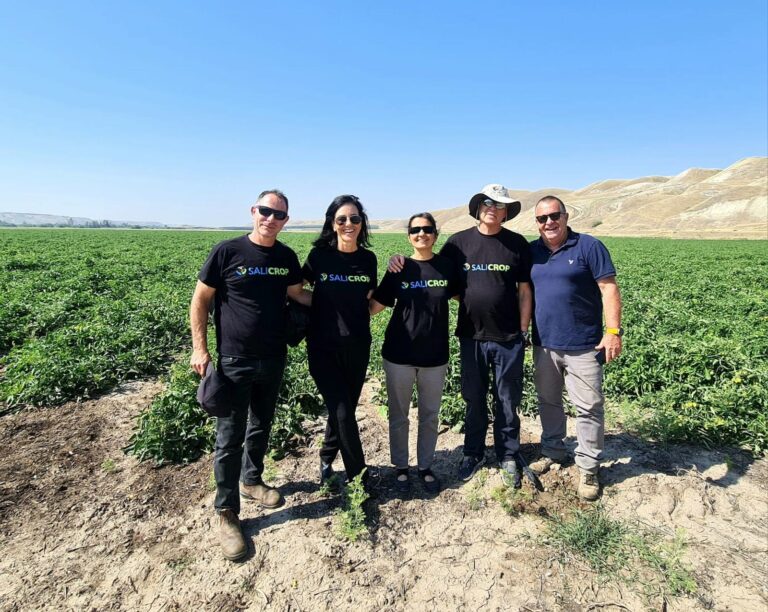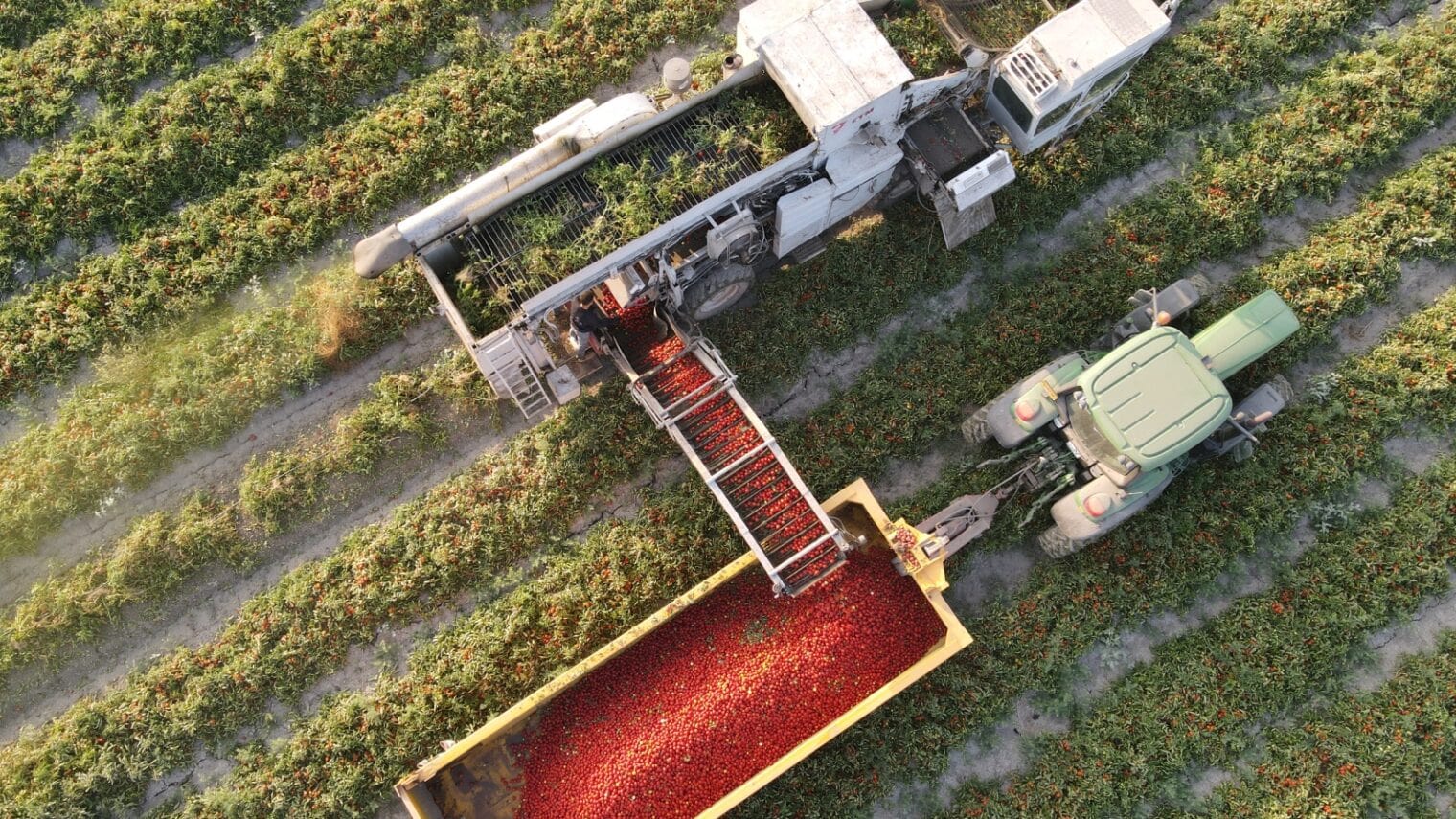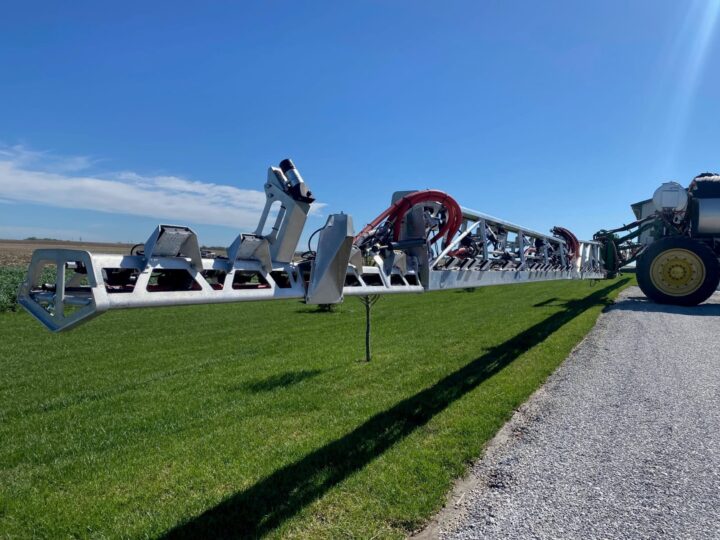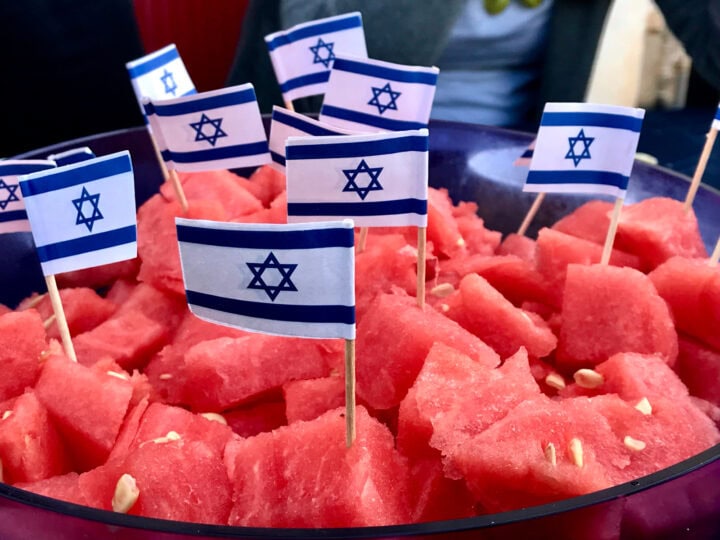It’s not just humans – plants get stressed too. And like the rest of us, when they get stressed they tend to “shut down” and simply not produce.
The most common kind, abiotic stress, is from intense heat or cold, prolonged dry spells or unhealthy levels of salinity due to rising sea levels and the intrusion of seawater into agricultural fields.
How bad is it? More than 830 million hectares of agricultural land is now overly salty. Heat stress is expected to threaten nearly three-quarters of the world’s food production over the next 20 years, according to the research group Verisk Maplecroft.
Abiotic stress is estimated to be responsible for a 30% to 50% loss of agricultural productivity worldwide, resulting in an annual loss of $170 billion in revenue.
Climate change is only making things worse.
As the world heats up, crops are dying before they’re picked – often in the summer when temperatures turn scalding. Moving up the time for planting can’t help much because it’s too cold earlier in the year.
More resilient seeds
Israeli startup SaliCrop can’t address the bigger issues of global warming nor the dance between drought and storms.
What it can do is pretreat seeds to make them more resilient to abiotic stress.
SaliCrop’s process, which is non-GMO and doesn’t change the seeds’ DNA, involves soaking seeds in a chemical cocktail customized for each type of crop.
“We’ve developed specific protocols tailored to a wide range of crops, including chilis, broccoli, tomatoes and onions,” Carmit Oron, the company’s CEO, tells ISRAEL21c.
“Having experimented with 15 different crop types, our current focus has narrowed that down to six key crops. Our technique involves activating the plant’s genes responsible for managing abiotic stressors, either by enhancing or reducing the genes’ activity. We’re not introducing anything external to the seeds. We’re simply optimizing what’s already there within them to improve resilience.”
Oron compares SaliCrop’s innovation to a sort of vaccine for crops.
“We know that seeds will be exposed to stress,” Oron explains. “Understanding that inevitability, we activate the seeds’ abiotic stress response mechanisms before the seeds are planted. We soak them, dry them and essentially ‘prime’ the seeds, equipping them to counteract stress from the outset. This proactive step signals to the seed the coming challenges, enabling it to adapt more rapidly to stress conditions.”
A seed that is not primed for stress “will invariably require a longer period to adjust,” Oron adds. “The tangible outcome of our strategic enhancement is an increase in crop yields, ranging from 10% to 25%.”
The company has completed some 100 field trials in Israel, India and Europe, Oron notes.
Spanish tomatoes, Indian rice
The proof is in the planting.
While SaliCrop is working in open fields (where some 97% of crops are grown) on several continents, Spain has been a particular success.
Spain, a global leader in tomato production, has been hard hit by escalating summer temperatures. This heat stress is of particular concern during the critical “fruit setting” phase as the plant transitions from flowering to developing fruit.
The country also is experiencing its worst drought in 160 years, with reservoir capacity at just 30%. All of this threatens the country’s agricultural production capabilities and resilience.
Spanish tomato farmers using SaliCrop’s product in the region of Extremadura have already seen a 10% to 17% increase in yield, which of course translates into added income.
Spain is not alone in experiencing tomato stress: A study published in 2022 in the journal Nature predicts a 6% decline in tomato yields by 2050 in major tomato growing regions such as Italy and California.
SaliCrop is also treating rice seeds in the East Godavari district of India; corn at Kibbutz Yotvata in Israel (where treated seeds yielded 57% more cobs compared with untreated seeds); green peas in Israel’s Emek HaMayanot; and more tomatoes – in Senegal and at Kibbutz Maoz Haim in Israel.
A seed of an idea
SaliCrop’s innovation is not originally Israeli. Indian scientist Rca Godbole, a molecular biologist who had worked for seed company Syngenta, wanted to grow beetroot on a plot of coastal land she owned in Mumbai. But the soil was too salty.
In addition to rising sea levels, salts deposited in the soil via fertilizers and pesticides, and irrigation with brackish water or treated sewage water – which for many farmers, including those in Israel, is unavoidable – exacerbates an already difficult environment.
A cyclone in Bangladesh in May 2010, for example, left more than 1,500 square miles of land submerged beneath seawater. The United Nations Food and Agriculture Organization estimates that around a fifth of the world’s irrigated land – some 20% – is already too saline for crop cultivation, resulting in a loss of $12 billion per year.
Agritech giant Monsanto has invested some $3 billion to genetically modify seeds to resist salt stress — so far, without success.
Godbole had the idea of treating the seeds to allow them to grow in a high salinity environment. (The name SaliCrop is a combination of “saline” and “crop,” although Oron notes that heat stress has now overtaken salinity as the biggest climate concern for crops.)
“Plants have certain environmental stress inducible genes that act as internal alarms,” Godbole notes. “When there is too much salt, or too much heat, these alarms go off and the plant enters defense mode. But often, by the time the plant reacts, it’s too late.”
In 2013, Godbole was introduced to Sharon Dvir, a key figure in managing the first Arab Israeli technological incubator, NGT in Nazareth, and Israeli agronomist Omar Masarwa. Dvir ran with the project, establishing SaliCrop in Israel and bringing on Oron as CEO.

Godbole remains active in the company as a cofounder and chief scientific officer. The company’s headquarters is in Kfar Vitkin in central Israel. SaliCrop currently employs six people and has raised $2 million.
Seeds-as-a-Service
SaliCrop’s business model might be described as “Seeds-as-a-Service” (a play-on-words of SaaS – Software-as-a-Service).
Either SaliCrop (today) or a partner (down the road) will treat the seeds; they will then reach farms through normal distribution channels. SaliCrop won’t work directly with farmers.
“We start with small-scale proofs of concept, fine-tuning our seed treatment technologies,” Oron tells ISRAEL21c. “We will then transition to subcontracting our processes to partners, enabling us to scale our treatments more significantly without the immediate need for our own facilities.”
As the company raises more funding, “We’re setting our sights on establishing a seed enhancement facility in Europe,” Oron adds.
SaliCrop will eventually offer a licensing model. By using the manufacturing capabilities of its customers, “we will be able to upscale our operations. By licensing our treatment formulas, we can create a sustainable revenue stream based on the volume of seeds treated.”
As the world experiences increasing desertification, SaliCrop promises greater food security for an uncertain future.
“Under SaliCrop’s treatment, plants not only thrive in poor quality, highly saline soil through enhanced nutrient absorption and improved root structures, but they also exhibit increased vigor and superior germination rates,” Oron says.
“This innovation turns marginal lands, previously considered barren, into fertile grounds capable of abundant food production.”
For more information on how the future of your next salad may fare, click here.

















